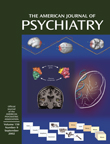Suicide Attempts in Substance Abusers: Effects of Major Depression in Relation to Substance Use Disorders
Abstract
OBJECTIVE: The authors’ goal was to investigate whether subtypes of DSM-IV depression predict suicidal behavior among patients with substance dependence. METHOD: Major depression among 602 patients with substance dependence was classified as occurring before dependence, during abstinence, or exclusively during periods of substance use. Analyses of patients with the three types of depression included logistic and linear regression. RESULTS: All three types of depression increased the risk for making a suicide attempt. Major depression that occurred before the patient became substance dependent predicted severity of suicidal intent. Major depression that occurred during abstinence predicted number of attempts. CONCLUSIONS: These results suggest the importance of establishing DSM-IV subtypes of depression based on the timing of the occurrence of depression in relation to substance dependence in evaluating suicidal risk among substance-dependent patients.



